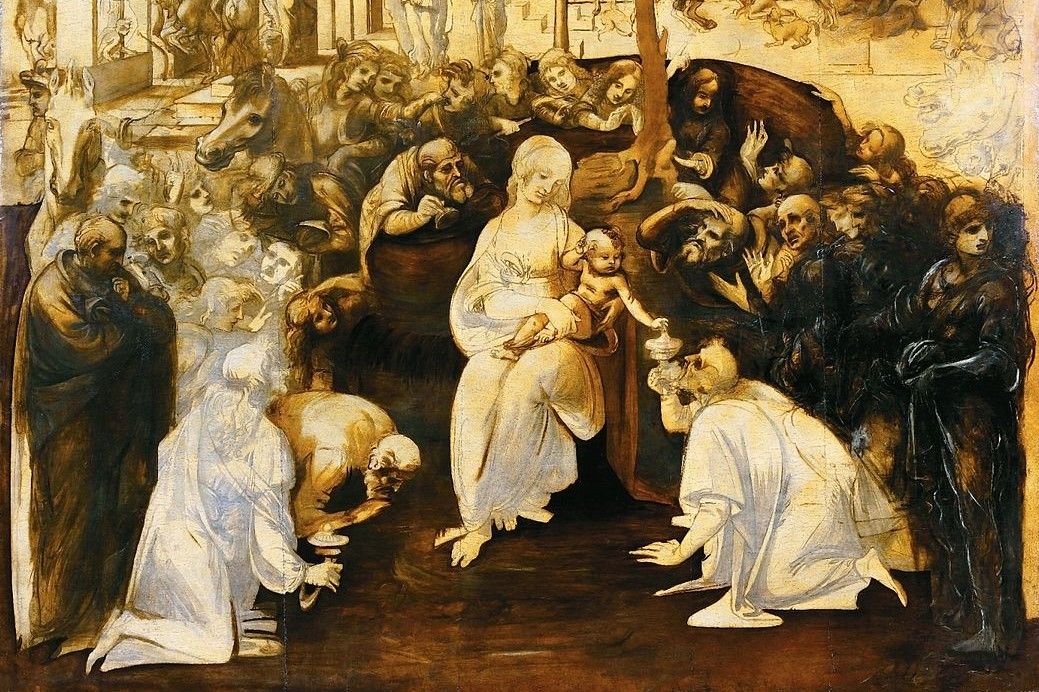As so often happens when I look Christ in the eye, at first I didn’t realize it. In fact, I was rather disgruntled. My twelve year-old brother had enrolled our family in the local Salvation Army Christmas Assistance Program, wherein we would bring gifts to a family on the other side of town. Although it is a lovely program and I was glad to see my brother take initiative, serious doubts vexed me.
What difference does it make if we meet this family once; wouldn’t it be better if we established a long term relationship with them? Wasn’t it offensive that we were condescending from our comfortable economic position to gawk at their poverty; wouldn’t it be better if we accompanied them in their poverty by voluntarily sharing in it? Finally, weren’t we aiding and abetting the commercialization of Christmas, teaching this family our own exhausting materialism; wouldn’t it be better if we gave spiritual gifts rather than material ones?
When we arrived in South Omaha to deliver the gifts, I brought my questions and reservations. The family welcomed us, we exchanged introductions, gave them the gifts, and received a very sweet card from them. As far as these type of deliveries go, it felt standard, nothing life-changing. I still wondered if we had not wasted our time and intentionally avoided a more difficult and more robust way of loving these people.
It was not until several days later that God shed new light on this quiet event.
“Whatever you did for one of these least brothers of mine, you did for me” (Mt 25:40). These words of Christ’s challenged me, as they so often have. Again, I had forgotten to see Christ’s face when looking at the poor! Again, I had forgotten even to look for it. Dorothy Day bluntly admitted what a challenge it is to perceive Christ in the poor: “It would be foolish to pretend that it is always easy to remember this.”[1] How much more fervently would I have loved these people if I had recalled, even for a second, that they were Christ!
Then, another Scriptural memory. If my family brought gifts to Christ in celebration of Christ’s birth, then we were walking in the footsteps of the Magi, following the bright star of their loving example. The Magi gave extravagantly, bestowed material gifts, and stayed only a short while. Perhaps they also fretted about loving Christ better, yet St. Matthew kindly smiles upon them. Limited as they were, the Magi’s gifts were still radiantly beautiful.
The Magi gave out of their wealth, so too us. The gold, frankincense, and myrrh benefited Christ’s body, cared for his physical needs, so too our sweaters and grocery store gift cards. The Magi did not stay for long, but returned home. They did not journey through life with Jesus as he learned to walk in obscurity, or as he crisscrossed Galilee proclaiming the Gospel, or as he trod the road to Calvary. They did not even accompany the Holy Family during their flight into exile in Egypt! Yet precisely through their material gifts, the Magi wonderfully blessed Christ by recognizing Him, by bestowing upon Him their time, attention, and presence, by pilgrimaging a great distance and displacing themselves from their ordinary lives to pay Him homage. Surely they went home changed and renewed (“they departed for their country by another way”), carrying Christ in their heart and out of that memory sharing Christ with their friends and family (Mt 2:12). May we do likewise.
In his encyclical Evangelium Vitae, St. John Paul II calls us to celebrate the Gospel of Life. He beckons us to imitate those “who see life in its deeper meaning, who grasp its utter gratuitousness, its beauty and its invitation to freedom and responsibility” (EV §83). We join the Magi in their awe at God’s gifts of life and love. “They were overjoyed” (Mt 2:10). We let our hearts soar with theirs, dancing with joy for the God who loved his Creation so passionately that he came to live in it. Reflecting the God in whose image we are made, the God who gives life to our infants, growth to our children, eternal life to our dying, and the capacity for love to us all, we do our best to defend, nurture, and foster life. We care for the poor in ways large and small. We remember that our very life and our entire life is the gift we receive from God and the gift we in turn offer to Him. With festive celebration, we bring Christ what meager gifts we can—for all our gifts pale in comparison with his—and we rejoice further that Christ warmly, gratefully receives them.
[1] Dorothy Day, “Room for Christ” in By Little and By Little: Selected Writings of Dorothy Day, ed. by Robert Ellsberg, (New York: Alfred A Knopf Publishing,1983), 96.

